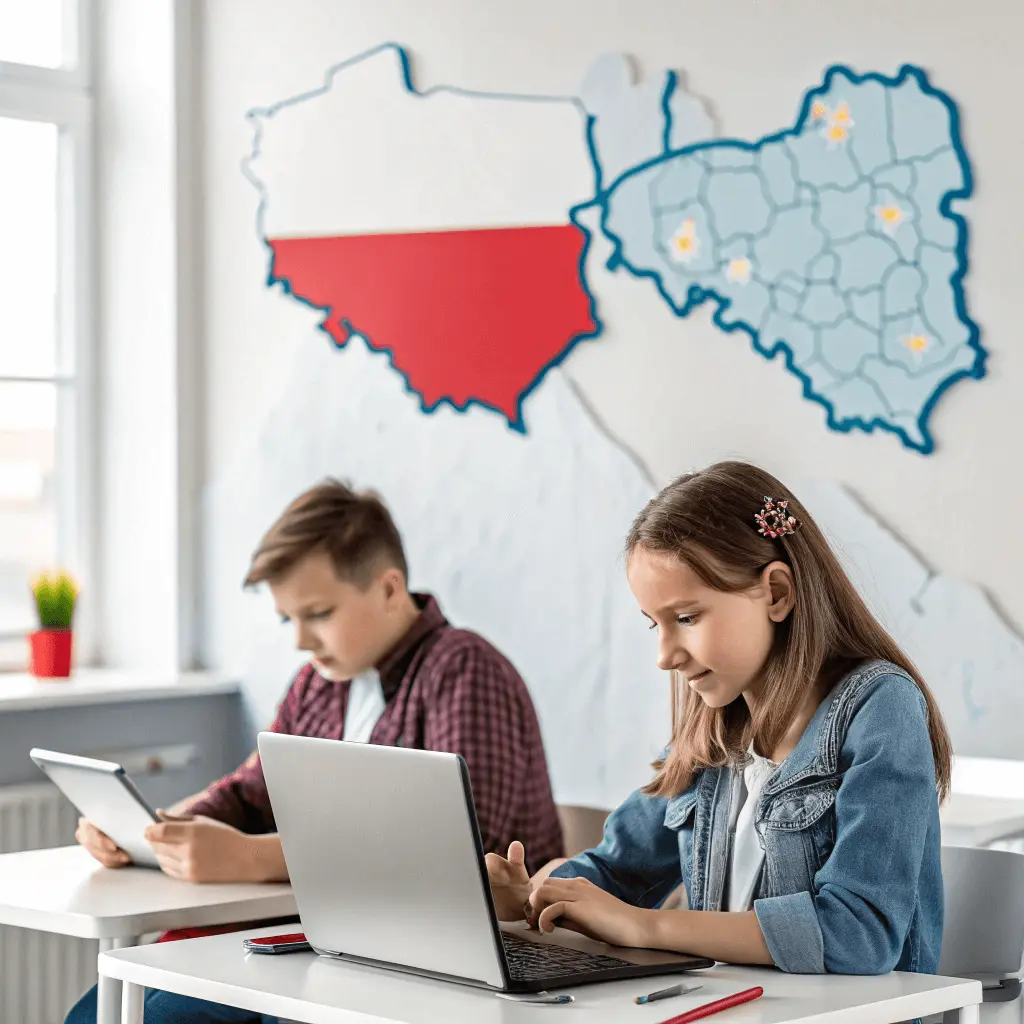
Poland has long valued its strong academic institutions, yet the rapid acceleration of the digital economy demands a transformation in how knowledge is accessed and acquired. Online education platforms—including Massive Open Online Courses (MOOCs), specialized skill schools, and blended learning solutions—are fundamentally changing the learning landscape. They are tearing down geographical barriers and offering Polish students and professionals unprecedented flexibility, directly influencing the country’s competitiveness in sectors like IT. This shift requires reliable, accessible digital environments, much like a trusted gaming hub such as vulkan bet casino provides a seamless digital space for entertainment.
The Digital Shift in Polish Learning Culture
The shift to online platforms in Poland is driven by the need for continuous skill development (upskilling) and career changes (reskilling). The Polish workforce, particularly in the tech and finance sectors, requires constant training to keep pace with global innovation, as traditional university programs cannot always adapt quickly enough.
Online platforms offer several advantages that cater to these evolving needs:
- Immediate access to specialized content: Learners can access courses tailored to specific skills and industries, often taught by leading industry experts.
- Personalized learning paths: Individuals have the freedom to choose modules that align with their career goals, allowing for a more targeted approach to education.
- Flexibility in scheduling: Without the constraints of a rigid semester schedule, learners can study at their own pace and balance their education with work and personal commitments.
- Democratization of knowledge: Online learning platforms make education more accessible, empowering individuals from diverse backgrounds to pursue opportunities that enhance their economic mobility.
This digital transformation not only facilitates individual growth but also strengthens the overall competitiveness of the Polish workforce in a rapidly changing global landscape.
Expanding Access and Opportunity
One of the most profound effects of online education is the expansion of access to high-quality learning materials across all of Poland. Geography is no longer a limiting factor. Students in remote or smaller communities, who might struggle to access major university cities like Warsaw or Kraków, can now enroll in top courses from anywhere with a stable internet connection.
This expansion of access directly addresses regional inequalities in educational opportunities. Moreover, the flexibility offered by these platforms is invaluable for professionals balancing work, family, and education, leading to higher completion rates among non-traditional students.
Targeting the Professional Reskilling Market
A critical focus area for online platforms in Poland is the adult education market. As industries evolve, many professionals require new certifications or a complete career pivot. Platforms offer intensive, short-term courses (bootcamps) in high-demand fields like cybersecurity, data science, and cloud computing. These programs are often co-developed with local Polish industry leaders to ensure the curriculum is immediately applicable to the job market. This focus on practical, career-oriented learning is essential for maintaining Poland’s competitive edge in the European labor market.
Quality Control and Accreditation Challenges
While accessibility to online vocational training has exploded, the challenge of quality control and accreditation remains significant. In a landscape saturated with thousands of courses, consumers often struggle to distinguish between high-value, industry-recognized certifications and low-quality content.
Polish regulatory bodies are actively working to standardize criteria for online vocational training. Their goal is to ensure that digital credentials hold the same weight as traditional qualifications, thereby protecting consumers and maintaining the integrity of the professional job market. Key steps toward building trust in this system include:
- Establishing standardized accreditation criteria: Creating clear benchmarks for what constitutes a quality online course.
- Enhancing transparency: Providing accessible information about the accreditation process and the credentials of course providers.
- Partnering with recognized institutions: Collaborating with established educational and industry organizations to validate online training programs.
- Implementing regular audits: Conducting assessments of online courses to ensure they meet established quality standards.
By focusing on these areas, Poland aims to enhance consumer confidence in digital qualifications and support the growth of a robust, credible online education sector.
The Blended Future of Education
The pandemic accelerated the acceptance of digital learning, proving its utility and necessity. Looking ahead, the future of education in Poland is increasingly blended, combining the best elements of in-person, traditional classroom interaction with the flexibility and specialized content delivery of online platforms.
This hybrid model allows universities and schools to scale up resource-intensive specialized courses while maintaining the social and collaborative benefits of physical attendance. Online platforms, therefore, are not replacements for traditional institutions but powerful supplements that ensure learning is continuous, relevant, and globally competitive.
As this hybrid approach evolves, it will also foster greater collaboration between educational institutions and industry partners. By integrating real-world projects, internships, and mentorship opportunities into the curriculum, students can gain practical experience while still benefiting from the academic rigor of traditional education. This synergy between theoretical knowledge and practical application will better prepare graduates for the complexities of the modern job market, ensuring they possess both the skills and the experience needed to thrive in their chosen fields.



